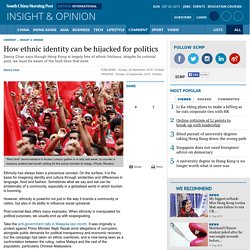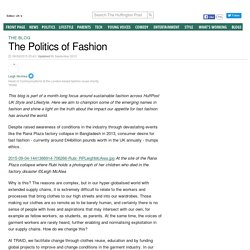

Generation indyref: the teenage first time voters who embraced politics (From Herald Scotland) EVA O'Donovan and Nina Candido Charley became symbols of the defeat of the Yes campaign last September.

Images of the despondent teenagers in a barren George Square, draped in Saltires and faces covered in Yes stickers, were beamed across the world. It was not all the photographs and clips of Eva and Nina, who were then just 16 and 17, symbolised. They also reflected a newly-politically engaged youth, a consequence of under-18s being given the chance to take part in an election for the first time in UK history. One year on, the debate continues over whether the referendum was good for Scotland.
But at least one legacy - extending the franchise - has been widely accepted. Eva, a waitress from Shawlands who hopes to study English and French at university, recalls lying to her mum by saying she was staying at a friend's house on referendum night. "We were really excited and were convinced it was going to happen," she says. "It felt really good to be able to vote. How ethnic identity can be hijacked for politics. Ethnicity has always been a precarious concept.

On the surface, it is the basis for imagining identity and culture through similarities and differences in language, food and fashion. Sometimes what we say and eat can be emblematic of a community, especially in a globalised world in which tourism is booming. However, ethnicity is powerful not just in the way it brands a community or nation, but also in its ability to influence social upheaval. Post-colonial Asia offers many examples. When ethnicity is manipulated for political purposes, we usually end up with scapegoating. Take the anti-government rally in Malaysia last month. In this place where 'East meets West', this 'Asia's world city', the issue of ethnic integration in the community is rarely addressed In times of peace, ethnic diversity is celebrated. Colonial governments typically play up ethnicity as a "divide and rule" strategy so as to manipulate the colonised.
What about Hong Kong? Danny W. Donald Macintyre's sketch: Angelina Jolie thrives in select committee appearance. George Osborne, knowing the journalists were not there for him but for someone much more famous, told them wryly as he passed: “I know my place.”

One of the more improbable double acts in global politics, Angelina Jolie and William Hague were about to do their thing. Ms Jolie was in sober black, her left hand occasionally making notes on the papers she had brought in her business-like ring binder. Collegiate and courteous, she made no attempt to steal the show. Leveling the Field: A Global Inventory of Gender Equality for Women. There was a time when “affairs of state” were seen as having nothing to do with women.

That time is now over. Today we have a strong evidentiary base that links the situation and security of women to state-level outcomes across a wide variety of issue areas—from health, wealth and governance to national security and stability. These linkages are no longer obscure. And because they have been made visible, policymakers have begun to address issues of women’s empowerment, both domestically and as a matter of foreign policy. Why the living wage is victory for people power, not party politics. Neil Jameson sits in a modest office in Whitechapel, east London, his softly spoken conversation competing with the murmur of children reciting the Koran in the madrasa next door.

On one wall is a giant map of London, peppered with more than 200 brightly coloured pins showing the local groups – schools, churches, mosques, trade unions – that have joined Citizens UK, the mass movement for social justice he has led for two decades. Every other available space on the walls is plastered with framed photographs of the political leaders who have attended one of the group’s public rallies over the years – and in many cases, been converted to its causes: above all, the demand for employers to pay a living wage. German supermarket Lidl became the latest convert on Friday.
Labour stalwarts, including Ed Miliband and Gordon Brown, feature prominently on Jameson’s wall of fame; but so does London mayor and darling of the Tory right Boris Johnson. Bond was eventually won over. The Politics of Fashion This blog is part of a month-long focus around sustainable fashion across HuffPost UK Style and Lifestyle.

Here we aim to champion some of the emerging names in fashion and shine a light on the truth about the impact our appetite for fast fashion has around the world. Despite raised awareness of conditions in the industry through devastating events like the Rana Plaza factory collapse in Bangladesh in 2013, consumer desire for fast fashion - currently around £44billion pounds worth in the UK annually - trumps ethics. At the site of the Rana Plaza collapse where Rubi holds a photograph of her children who died in the factory disaster ©Leigh McAlea Why is this? The reasons are complex, but in our hyper-globalised world with extended supply chains, it is extremely difficult to relate to the workers and processes that bring clothes to our high streets and into our wardrobes. One of TRAID’s charity shops, in Dalston, London, our alternative to the high street. What would this look like?